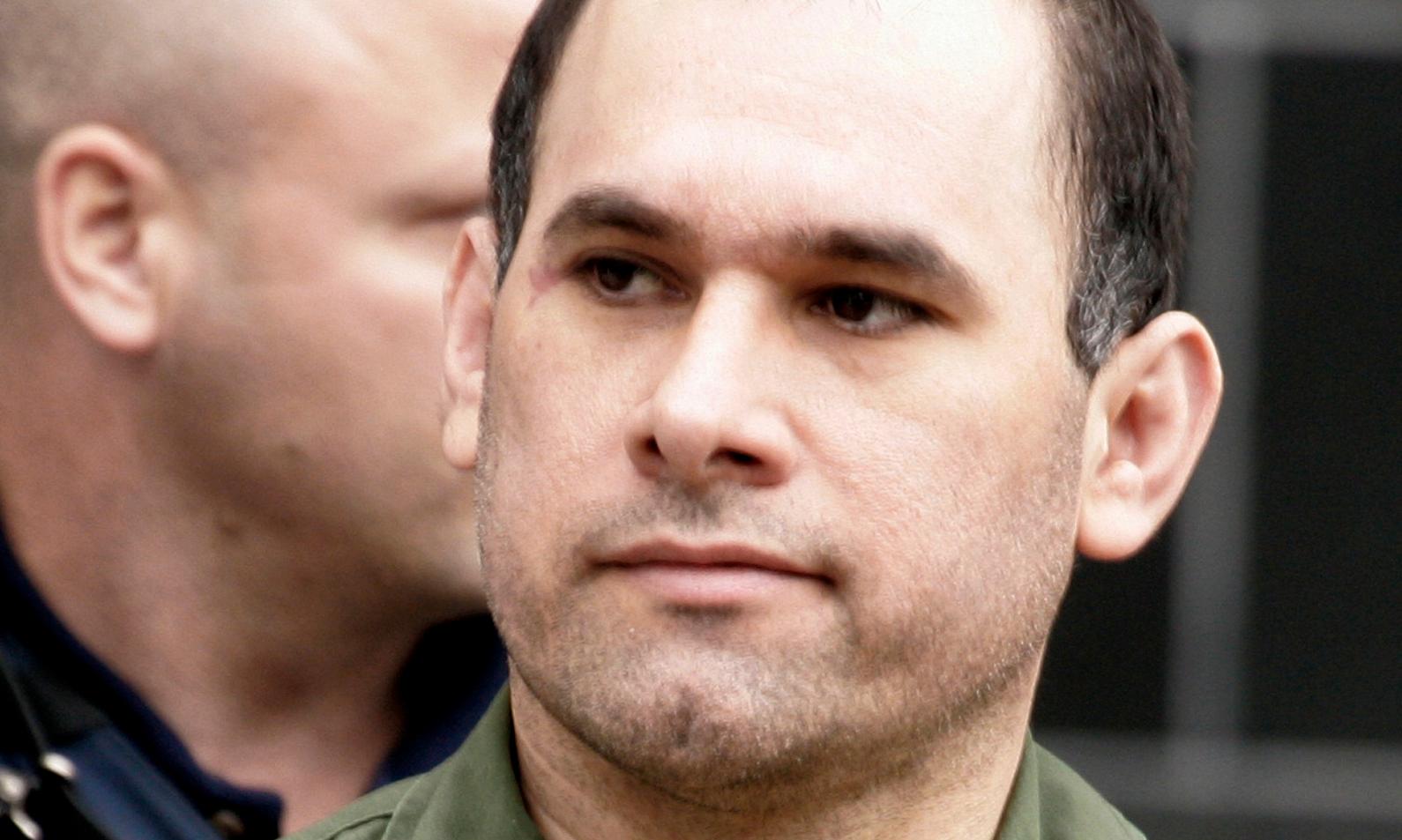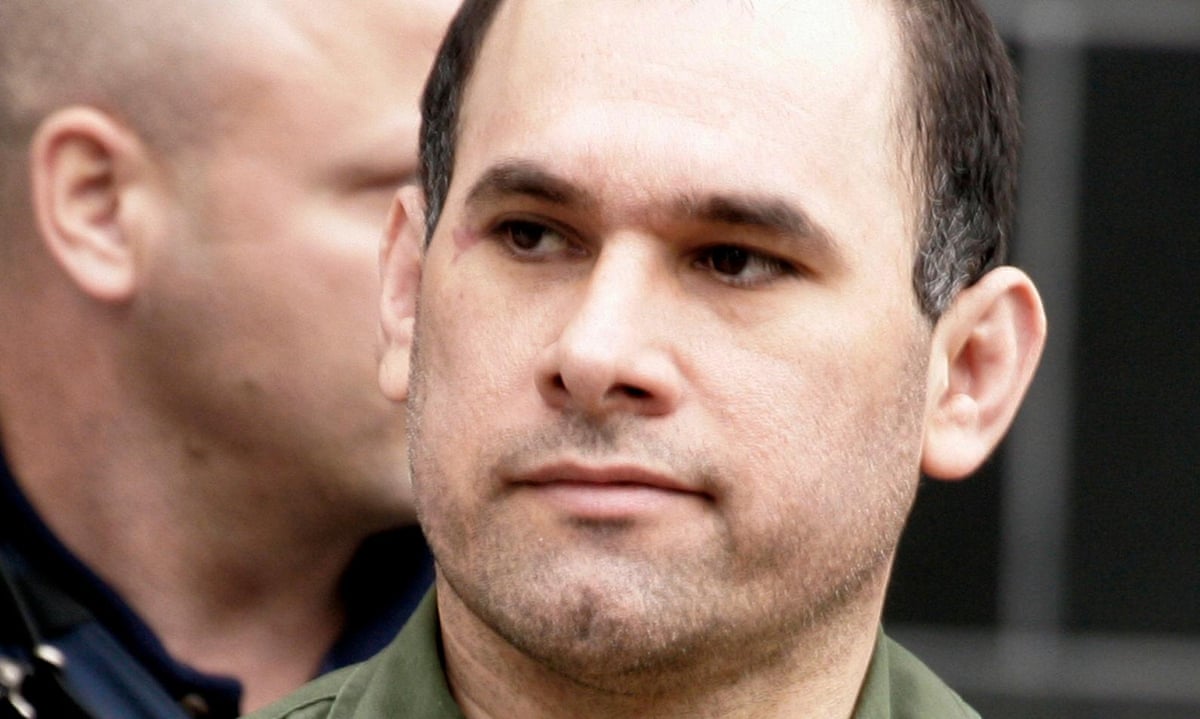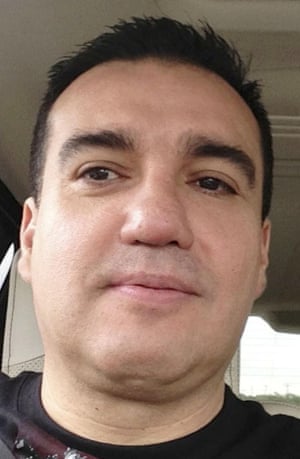Mexican cartel team used elaborate tactics to hunt murdered rival in Texas

Gulf cartel men stalked Juan Jesus Guerrero Chapa for two years, searching across southern US and deploying tracking devices to find him, court was told

A surveillance team working for a revenge-fuelled Mexican drug cartel boss hunted a Texas-based rival in a sophisticated tracking operation and enabled his murder, a court was told on Tuesday.
Juan Jesus Guerrero Chapa was the personal attorney of Osiel Cardenas Guillen, the former head of the Gulf cartel. Guerrero Chapa was shot dead on the evening of 22 May 2013, as he shopped with his wife in a smart open-air precinct near Dallas-Fort Worth international airport.
It was the swift and bloody climax to a painstaking search for the Mexican citizen, who lived with his family in a mansion bought under an alias in the wealthy enclave of Southlake. The hunt began in 2011, assistant US attorney Joshua Burgess said in a federal courtroom in downtown Fort Worth during opening statements in the trial of two men accused of involvement in the killing.

Three relatives looked for Guerrero Chapa in the south Texas borderlands, then the Dallas region, Burgess said. When they failed to locate him, the pursuit moved to south Florida, where the victims brother lived, and they tried to rent a house in his gated community to get close to him.
Ultimately, the prosecution contends, the trackers returned to the Dallas area and found Guerrero Chapas sister-in-law. They attached a GPS tracking device to her car and located the attorney when she made several trips to his home. Then they planted devices on his vehicles and hid a game camera in his front yard that was spray-painted to blend in with its surroundings. They worked in concert as hunting guides. Their prey was Mr Chapa, Burgess said.
Jesus Gerardo Ledezma-Cepeda and his cousin, Jose Luis Cepeda-Cortes, a legal US resident, are charged with interstate stalking resulting in death and conspiracy to commit murder for hire. Cepeda-Cortes is also accused of attempting to destroy evidence. They pleaded not guilty on Tuesday.
Burgess said that Ledezma-Cepedas son, Jesus Gerardo Ledezma-Campano, will testify for the prosecution. He has pleaded guilty to a stalking charge. All three were arrested in September 2014 Ledezma-Cepeda and his son had tried to enter the US by crossing a border bridge in the Rio Grande Valley.
As Guerrero Chapas wife stowed a bag in the back of their Range Rover, a white Toyota Sequoia SUV drove up behind them and a masked man got out and walked to the passenger side of the vehicle, firing multiple shots through a closed window with a 9mm handgun.
Their target was hit in his back and left side as he twisted his body and tried to escape by crawling to the rear of the car. The Sequoia swiftly drove off, and the shooter and driver are thought to be still at large.
The trial is taking place amid tight security at the courthouse in downtown Fort Worth. Ledezma-Cepeda occasionally rubbed his forehead during proceedings on Tuesday. He and Cepeda-Cortes were impassive as the jury was played cellphone video footage of the immediate aftermath of the shooting, taken by a shopper, which included a view of the bullet-ridden vehicle and Guerrero Chapas wife screaming, though she was unhurt.
Burgess said that Ledezma-Cepeda was parked on the other side of a pond from where the murder took place, affording him a direct view of the shooting; his son was in a coffee shop.
Defence lawyers claimed in pre-trial court documents that Guerrero Chapa became the de facto leader of the Gulf cartel after Cardenas Guillens arrest in 2003. He was extradited to the US in 2007 and sentenced to 25 years in federal prison in 2010. He is expected to testify for the defence during this trial. Guerrero Chapa lived legally in the US and was an informant for American authorities.
Wes Ball, one of Ledezma-Cepedas attorneys, told jurors that a Mexico-based man known as El Gato (The Cat), a high-ranking member of a different cartel, held Guerrero Chapa responsible for the death of his father and wanted payback. Ball said that Los Zetas, the former paramilitary wing of the Gulf cartel, were also angry with the victim because of his cooperation with US law enforcement.
Ball described his client, a former police officer in Monterrey, Mexico, as a private investigator whose typical line of work was following cheating spouses. But El Gato called him to a meeting in an auto repair shop and ordered him to track Guerrero Chapa, Ball said, adding: This is not a job offer with a right of refusal Mr Ledezma did what he was told and he had no choice.
Robert Rogers, representing Cepeda-Cortes, portrayed the defendant as an unwitting participant: a man with reasonable computer skills who lived a quiet life in south Texas and simply wanted to help out his cousin, without realising the consequences.
Cepeda-Cortes was enticed by the offer of free trips to Miami and Dallas, Rogers said, and in 2012, in the heart of this conspiracy, even travelled to Los Angeles to be on a Hispanic equivalent of the television show Americas Got Talent. Once he saw that Guerrero Chapa was dead, Rogers said, his client tried to wipe digital footprints of his activities out of fear.
The trial is expected to last about four weeks.